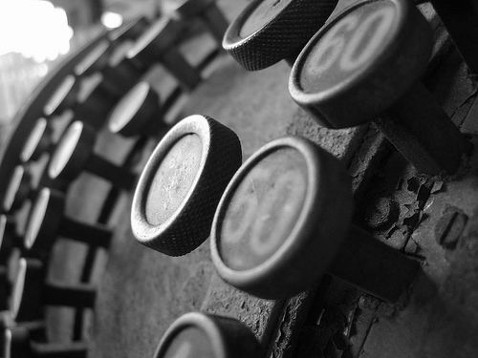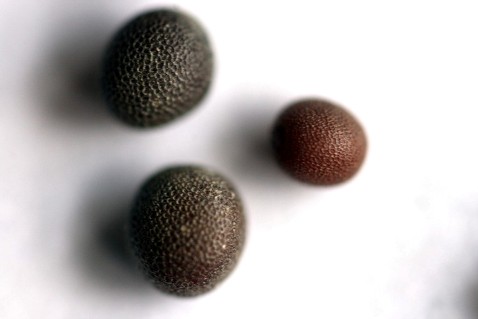wild is the wind
/
photo by KevinGrahame
On the west coast of New Zealand overlooking the fierceness of the Tasman Sea, the trees growing in the rocky crags of the shoreline jut sideways. The branches on the sea side are barren, twisted. The force of the wind changes their structure, the way their nature demands to grow beaten into submission. The limbs bend permanently off to the side pointing towards the land. "Go this way," they point. "Go away from the brutal sea." They morph from the relentlessness of the coastal wind. Their shape is the shape of the wind. It is the shape of abuse. Sometimes when I think back on how captivating those trees were, how haunting, how few pictures I took of them, yet how often I think of them, sometimes I think that shape is the shape of love.
Let the wind blow through your heart, for wild is the wind.
All the love songs are written about Lucia. All the heartbreak songs. All the songs about loss and want and ache. All of the songs. I want to write about her too, but I can't seem to find the words. I know nothing about Lucy except that she isn't here. And the cadence of her not being here is like the wind beating on me, changing me. I relent. My branches bend over, growing uncomfortably sideways, damaged, impossible. I bend from the love. The love disguised as sadness and grief. Sometimes I get confused by that, thinking that I am bending from the hurt, but it is love that bends me, that points me away from everything else. I look debilitated. I feel debilitated. Until, suddenly, I realize that it has become so much a part of who I am, I am not uncomfortable anymore. And until it became so much a part of who I am, the way I was, unbending and sure of the world, makes no sense anymore.
You're Spring to me, all things to me.
I never thought I’d survive the death of one of my children. That is what I used to say when I would hear a horror story about stillbirth, or infant death. "Oh, I would never survive," I would muse. I thought I would turn into dust and ash and be carried off, a bit of me left everywhere until I was nowhere at all. I'd close my eyes to banish the thought of it. Cross myself. Throw salt over my left shoulder. Touch wood. Hold my breath. Make a wish. Knock on wood. Throw salt over my shoulder. Whisper on the wind.
Let me fly away with you.
Maybe I really thought I would never survive it, or that is simply all the further I could think of such a scenario. It seemed so horrid, I wouldn't dignify imagining how it would really be. Maybe I said things like that because I thought I was not the kind of person that babies die inside of. I remember that feeling of talking myself out of the anxiety of the stillness. I felt silly for being afraid. I felt silly. I used to think I was a humble person. Confident, perhaps, but humble. Humility, in fact, was my religion. That seemed the key to a spiritual existence. Humility and compassion. Hand in hand. Then I thought I was humble because I lost so much. Before that, I thought I was humble because I didn't think I was the prettiest, smartest or most talented person and that realization didn't floor me. My philosophy of life was simple: "I am not anyone special. And neither are you."
I suppose now I see humility differently. Humility to me is accepting that I am not capable of transcending my humanness. My child died in me not because I am bad, or good, or humble, or arrogant, or I deserved it or didn't deserve it. She died because I am human. I am not a terrible person, just a person. And I am changed by the grief. My branches own the hurt perhaps further are the hurt of simply being human and loving so much.
Wild is the wind. So wild.
Though I thought I'd never survive my child's death, I survived it. What did I think I would do? Kill myself? Expire from lack of wanting to survive? After living through the death of my child, I realized that surviving isn't the hard part. You can live despite yourself and in spite of yourself. You can punish, abuse, disengage with you, you can cut yourself off from everything. You can try to will life to stop, but it won't. You wake up everyday and remember what happened again. And your arms bend a little more.
It is the thriving that feels impossible. It is the hope that gets choked, the loneliness that settles onto your bones like an old wet wool coat, useless and bulky in its wetness, and uncomfortably heavy. It is the juxtaposition of the old, wet, wool coat, and the wind that blows through your heart. And the wind that blows through the holes in you. Your arms tire. Everything is tired. But you still live.
My love is like the wind.
There is a hole in me that seems bigger than any one person could have ever filled, especially someone so little and dead. The wind blows through her tree this morning, moving the tiny Buddhist bell and the flags that send a prayer off to the corner of the globe. That prayer can never be answered. And still I pray for the impossible--a moment with Lucia again. A moment. One tiny wisp of her. The grief that whirled in me after she died touched all the other grief in me. I can see that now. That is why I am defined by grief now, because we are all defined by grief. I am not special because of that. And neither are you.
I am more beautiful, though, because of Lucia. More beautiful because grief debilitated me until I grew into the shape of grief and into the shape of love. I am sideways and ugly and in that way, I suppose I am beautiful.
For we're creatures of the wind and wild is the wind.
What ways has grief shaped you? What parts of you feel leafless and empty? What parts of you are heartier? What ways have you grown more beautiful because of your grief? In what ways have you thrived? In what ways have you merely survived?




